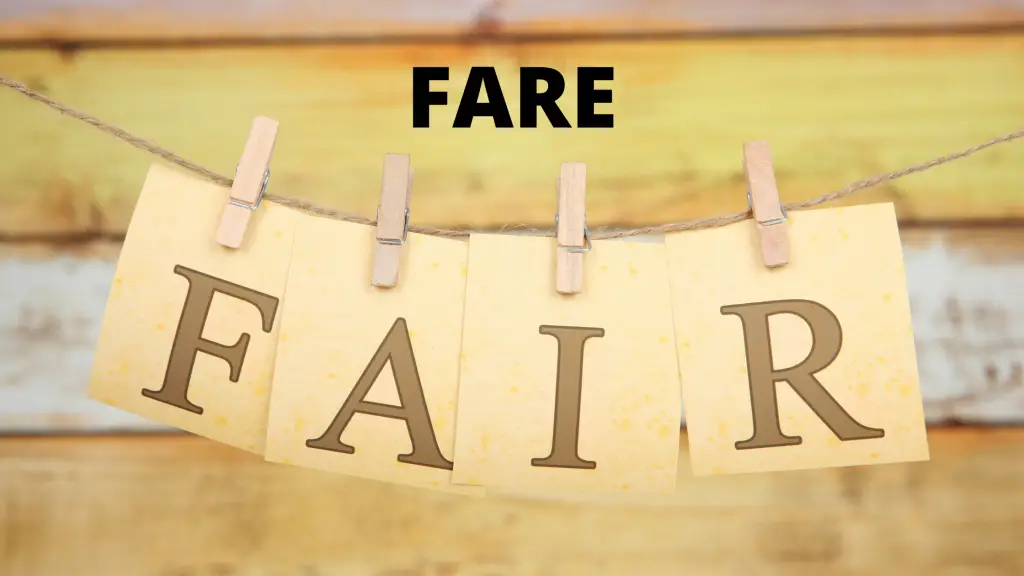Fare and fair are considered to be homophones and can be incredibly confusing. The words sound the same, but they are spelled differently and have meanings that are different. Due to this, they get confused with each other constantly. When you mix up these words, it changes the meaning of the entire sentence.
Fair has several different meanings and can be an adverb, adjective, or noun. It mostly has to do with a pleasing appearance, everyone playing by the rules, and an event for the public good. Fare has fewer meanings and means to get along or money that a passenger must pay for public transportation.
Fair
As stated above, “fair” has multiple different definitions. First, fair is an adjective that means something of pleasing appearance due to being fresh or pure, such as a sky that is free of clouds. Used as an adjective, the word fair also means to be in accordance with proper standards and rules or satisfactory.
As an adverb, fair refers to something that is in a proper legal manner or doing something without cheating to try to get an unjust advantage.
Finally, as a noun, fair refers to an exhibition such as manufactured foods or farm products. It also refers to an exhibition that is meant to inform people of a product or business opportunity. Finally, it refers to an event that is put on for the benefit of the public good or charity.
Examples
She has fair skin, so she burns easily in the sun.
The skies are going to be fair tomorrow, so it’ll be a great beach day!
The other team wasn’t playing fair and kept breaking the rules.
All athletes are expected to play fair during games.
There was a job fair with a ton of information for the unemployed.
I bought a bunny at the county fair.
Their church is hosting a fair with the purpose of raising money for the hungry.
Popular Phrases
By fair means
Fair and square
Fair deal
Fair enough
Fair is fair
Not fair
Fare
Fare doesn’t have as many definitions as fair, but it can still be used in multiple ways. First, fare is a verb that is used to describe how someone gets along or performs in a specific way.
Fare can also be used as a noun. When used as a noun, fare refers to the money that is paid by a passenger for public transportation or a food and drink range, such as Italian food.
One of the most popular phrases that includes the word fare is “fare the well”. This expression is more old-fashioned and isn’t used very often anymore. It might sound out of place if you use it today, but you will often notice it in older literature.
Examples
I didn’t fare very well during my last competition.
The fare for the city bus keeps increasing.
Airlines are known for increasing their fare prices for last-minute flights.
Did you fare okay through the storm?
In addition to the fare, expect to pay additional fees for baggage.
There is a restaurant down the road with French fare that is incredible.
Popular Phrases
To fare against
To fare up
How did you fare?
Fare thee well
Fare vs Fair
When trying to remember the difference between fare and fair, you can consider the way they are spelled. For example, a fAIR usually takes place outside in the open AIR. To remember fare, think of the e. Travel and price also have E and fair doesn’t. If you are talking about the price of travel, you are talking about the fare.
- “How Was Your Weekend?” Alternative Ways to Improve Your Conversations - February 19, 2024
- On Monday or Monday? What’s the Difference? - December 1, 2023
- 20 Alternative Ways to say “Thanks for the Heads Up”(+ Meaning) - November 30, 2023

